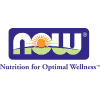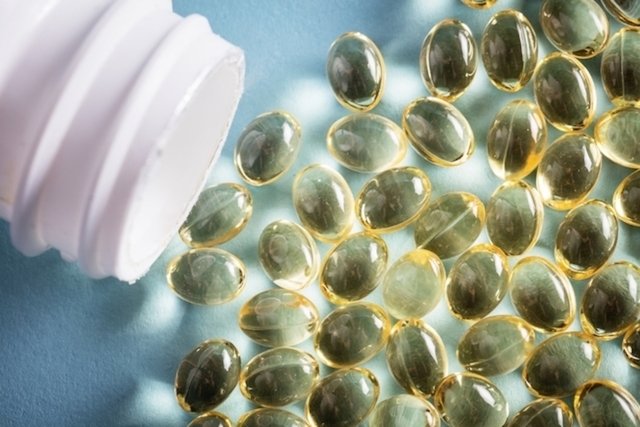Now Calcium & Magnesium With Vitamin D And Zinc
Additional viewing options
Categories
-
Cosmetics
-
Health
-
Animal's Health
-
General Wellness
-
Healthy Guts
-
-
Bones and Joints
-
Boswellia
-
Chondroitin
-
Collagen
-
Glucosamine
-
Healthy Joints Supplements
-
Hyaluronic Acid
-
MSM
-
-
Digestion and Healthy GI
-
Butyric Acid
-
Digestive Enzymes
-
-
Essential Oils
-
Fish Oil / Omega-3
-
Healthy Sleep
-
Cortisol Control
-
Melatonin
-
-
Heart and Cardiovascular System
-
Immunity
-
Liver
-
Detox
-
Milk Thistle
-
NAC N-Acetyl-Cysteine
-
-
MCT Oil
-
Men
-
Multivitamin for Men
-
Sexual Health
-
Maca
-
Prostate Supplements
-
Saw Palmetto
-
Tribulus
-
-
-
Mind and Focus
-
Brain Health
-
Nootropic Supplements
-
-
Minerals
-
Boron
-
Calcium
-
Chromium
-
Iodine
-
Iron
-
Magnesium
-
Multimineral
-
Potassium
-
Selenium
-
Silicon
-
Zinc
-
-
Pro-Health Supplements
-
ALA - Alpha Lipoic Acid
-
Coenzyme Q10
-
Glutathione
-
PQQ
-
-
Probiotics
-
Acidophilus
-
Bifidobacterium
-
Bifidus
-
Lactobacillus
-
Multi-Strain Probiotic
-
Prebiotics
-
Prenatal Probiotics
-
Probiotic for Children
-
Saccharomyces Boulardii
-
-
Senior
-
Heart and Cardiovascular System
-
Multivitamin for Seniors
-
Prostate Supplements
-
-
Superfoods
-
Urinary Tract
-
Vitamins
-
Multivitamin
-
Vitamin A and Beta-Carotene
-
Vitamin C
-
Vitamin D
-
Vitamin E
-
Vitamin K
-
Vitamins B
-
-
Vitamins for hair
-
Vitamins for nails
-
Vitamins for the skin
-
Weight Management
-
Apetite Control
-
Endocrine System
-
Cortisol
-
Glucose - Insuline
-
Thyroid
-
-
Fiber
-
Water Loss
-
-
Woman
-
Digestion and Healthy Guts Supplements
-
Menopause Supplements
-
Multivitamin for Women
-
Progesterone
-
-
-
Healthy Diet
-
Bars
-
Energy Bars
-
Full Boxes
-
Protein Bars
-
-
Cooking Oils
-
Gluten Free
-
GMO Free
-
Healthy Snacks
-
Healthy Chips
-
Healthy Pancakes
-
Nut Butters
-
-
Lactose Free
-
Sauces and Dips
-
Sugar Substitutes
-
Erythritol
-
Stevia
-
Xylitol
-
-
Vegetarian / Vegan
-
-
Herbs
-
Adaptogens
-
Adaptogen Complex
-
Ashwagandha
-
Bacopa Monnieri
-
Ginkgo Biloba
-
Ginseng
-
Gotu Kola
-
Rhodiola Rosea
-
-
Algae
-
Chlorella
-
Kelp
-
Spirulina
-
-
Antioxidant
-
Curcumin and Piperine
-
Green Tea
-
Lutein
-
Quercetin and Bromelain
-
Reishi
-
Resveratrol
-
-
CBD
-
Extracts
-
Artichoke Extract
-
Broccoli Seed Extract
-
Cat's Claw
-
Cinnamon
-
Curcumin
-
Extract Complex
-
Garlic Extract
-
Ginger Extract
-
Moringa
-
Olive Leaf
-
Oregano Extract
-
Pau d'Arco
-
Piperine
-
-
Mushrooms
-
Astragalus
-
Cordyceps
-
Lion's Mane
-
Mushroom Complex
-
Shiitake
-
-
-
Mother and Baby
-
Child
-
Focus Support for Children
-
Multivitamin for Children
-
Vitamin D for Children
-
-
Multivitamin for Mom
-
Postnatal
-
Prenatal
-
Folic Acid
-
Omega 3
-
Prenatal Multivitamins
-
-
-
Sport
-
Amino Acids
-
BCAA
-
BCAA Blends
-
EAA
-
L-Glutamine
-
Taurine
-
-
Carbohydrates
-
Complex Carbs
-
Dextrose
-
Vitargo
-
-
Creatine
-
Buffered Creatine
-
Creatine Blends
-
Creatine HCl
-
Creatine Malate
-
Creatine Monohydrate
-
Creatine Stacks
-
-
Electrolites
-
Energy Gels
-
Isotonic Drinks
-
-
Fat Burners
-
Fat Burners for Advanced
-
Fat Burners for Beginners
-
L-Carnitine
-
Thermogenic
-
-
Gainer
-
Less than 50% Protein
-
More than 50% Protein
-
-
HMB
-
NSF Certified for Sport
-
Post-Workout Supplements
-
Pre-Workout Supplements
-
Beta-Alanine
-
Nitric Oxide Boosters
-
Citrulline
-
L-Arginine
-
-
Pre-Workout Stimulants
-
Stimulant Free
-
-
Protein Supplements
-
Beef Protein
-
Casein - Nighttime Protein
-
Hydrolyzed (WPH)
-
Isolates (WPI)
-
Protein Blends
-
Vegan Protein
-
WPC
-
-
Training Accessories
-
Pill Organizers
-
Shakers
-
-
-
Your Goal
-
Endurance
-
Gym
-
Healthy Joints
-
Muscle Mass Building
-
Triathlon / Cycling / Running / Swimming
-
Weight Loss
-
-
New products
-
Specials
-
Featured Products
-
Short expiration dates
New Products
NOW FOODS Calcium & Magnesium with Vitamin D and Zinc - 240 Softgels

Other variants:
Description
see delivery costs Free delivery option
only for shipment in Poland Available delivery forms for viewing the product:Courier InPost - 2,56 €
Paczkomaty24/7 - 2,58 €
Poczta Polska (The Polish Post) POCZTEX48 with collection at a point - 1,84 €
Poczta Polska (The Polish Post) POCZTEX48 - 2,15 €
Courier DPD - 2,69 €
ORLEN Paczka - 1,50 €
Registered mail PL - 3,36 €
Priority registered mail - 3,94 €
Self- pickup - 0,00 €
FREE GIFT TO EVERY ORDER

LOYALTY PROGRAM
exchange
points
for PLN!
For this product you will receive: 87
points
- DescriptionDescription
- Dosage
- Ingredients Table
- About the brand
- Nutritional Information
- Reviews (0)
- Articles
NOW FOODS Calcium & Magnesium with Vit D and Zinc
Calcium and magnesium capsules include vitamin D-3 and zinc, offering a truly balanced blend of essential minerals. This formula supports strong bones and teeth as well as healthy enzymatic activity. Supplied by a softgel, this formula is more easily absorbed and absorbed than capsules or tablets.
Dosage
Take 3 softgels daily, preferably in divided doses, with food.
Ingredients
Container: 240 Softgels
Serving Size: 3 Softgels
Servings per Container: 80
Form: Softgel
Ingredients
Content in a portion
in 100 g
% RDA
Other ingredients
Vitamin D3 (as Cholecalciferol) (from Lanolin), Calcium (from Calcium Carbonate and Citrate), Magnesium (from Magnesium Oxide and Citrate), Zinc (from Zinc Oxide), Rice Bran Oil, Softgel Capsule [bovine gelatin (BSE-free), glycerin, water, calcium carbonate], Soy Lecithin and Beeswax. Not manufactured with wheat, gluten, milk, egg, fish or shellfish ingredients. Produced in a GMP facility that processes other ingredients containing these allergens.
About the brand
Now Foods is a 50 years of experience brand from across the Ocean. Since the very beginning they have been focusing on producing healthy nutritious food and it is still the case today. Since 1968 Now Foods has been taking care pf not only athletes but also has been offering products that enhance physical activity, maximize the post-workout recovery and help to lose the body weight. In their range of merchandise, you can find products that support musculoskeletal system, cosmetics for the face and body, many kinds of aromatherapy essential oils and healthy foods. Interestingly, Now Foods offers also products for pets. Most of them are dedicated to dogs and cats.
Nutritional Information
A dietary supplement / A nutrition supplement as a substitute for everyday diet, used for weight control.
Cannot be used as a substitute of a healthy and balanced diet.
For adults only. Consult physician if pregnant/nursing, taking medication, or have a medical condition.
Do not exceed recommended dosage per day.
Accidental overdose of iron-containing products is a leading cause of fatal poisoning in children under 6. Keep this product out of reach of children. In case of accidental overdose, call a doctor or poison control center immediately.
Best before: date on the package
Natural color variation may occur in this product.
Store in a cool, dry place after opening.
All descriptions are the property of the www.mass-zone.eu. Copying or distribution is strictly prohibited! As per the Copyright Act from February 4th, 1994.
Manufacturer: NOW FOODS 395 S. GLEN ELLYN RD., BLOOMINGDALE, IL 60108, USA.
Reviews
Lack of reviews for this product. Be the first to write a review.
Find out more about the presented product on our blog:
there is no articles
Other products in category





Now Calcium & Magnesium With Vitamin D And Zinc
Source: https://mass-zone.eu/en/now-foods-calcium-magnesium-with-vitamin-d-and-zinc-240-softgels-p-3159.html



























